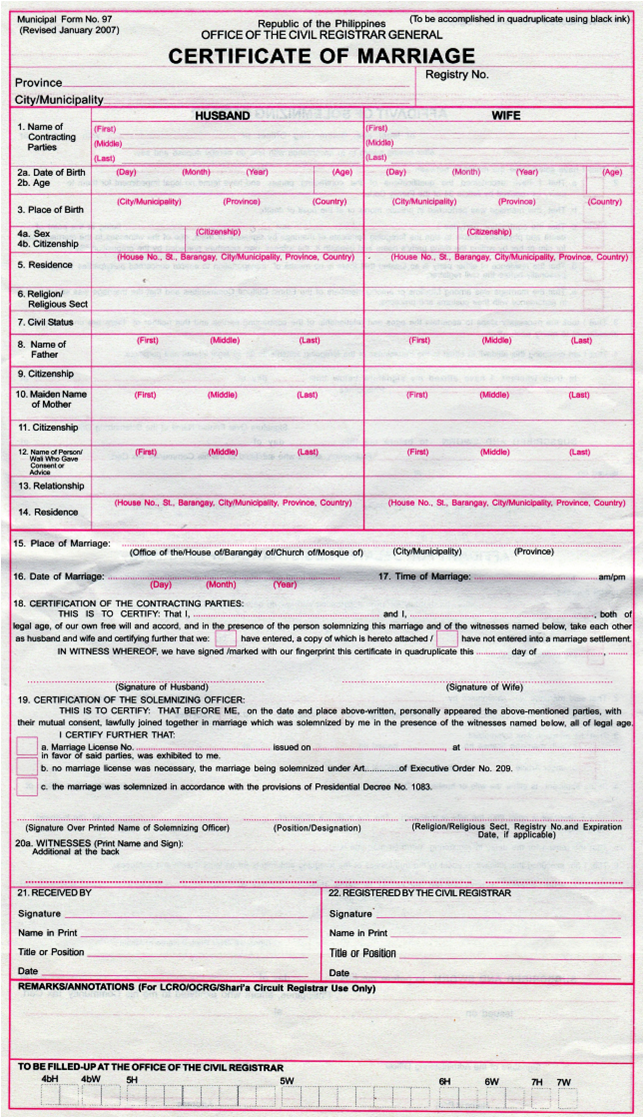Article Explanation: Articles 143, 144, 145 and 146 of the Family Code
Chapter 6 – Regime of Separation of Property
Art. 143. Should the
future spouses agree in the marriage settlements that their property
relations during marriage shall be governed by the regime of
separation of property, the provisions of this Chapter shall be
suppletory. (212a)
Explanation:
The regime of
complete separation of property is that matrimonial property regime
agreed upon in the marriage settlements by the future spouses whereby
each spouse shall own, dispose of, possess, administer, and enjoy his
or her separate estate or earnings acquired before and during the
marriage without the consent of the other, with each spouse bearing
the family expenses proportionally to their earnings and profits of
their separate properties.
The advantage of
this regime is its simplicity. It does not require a complicated
liquidation upon the dissolution of marriage. The disadvantage of the
regime is that it is based on distrust. It can result in disputes
between the spouses in the sharing of the family expenses.
The regime of
complete separation of property is applicable: (a) when the spouses
agree upon it in the marriage settlements; and (b) if ordered by the
court in proper cases.
The regime is
governed: (a) by the provisions in the marriage settlements; and (b)
suppletory, by the provisions of this Chapter.
Definition:
suppletory = supplementary
Art. 144. Separation
of property may refer to present or future property or both. It may
be total or partial. In the latter case, the property not agreed upon
as separate shall pertain to the absolute community. (213a)
Explanation:
Kinds of separation
of property
By Existence: (a)
present property; (b) future property; or (c) both present and future
property
By Extent: (a)
total; or (b) partial
In case of partial
separation: the property not agreed upon as separate shall pertain to
the absolute community
Art. 145. Each
spouse shall own, dispose of, possess, administer and enjoy his or
her own separate estate, without need of the consent of the other. To
each spouse shall belong all earnings from his or her profession,
business or industry and all fruits, natural, industrial or civil,
due or received during the marriage from his or her separate
property. (214a)
Explanation:
Each spouse shall
own, dispose of, possess, administer, and enjoy his or her own
separate estate, without the need of the consent of the other.
All earnings from
his or her profession, business or industry and all fruits, natural,
industrial or civil, due or received during the marriage from his or
her separate property shall belong to each spouse.
Art. 146. Both
spouses shall bear the family expenses in proportion to their income,
or, in case of insufficiency or default thereof, to the current
market value of their separate properties.
The liabilities of
the spouses to creditors for family expenses shall, however, be
solidary. (215a)
Explanation:
The family expenses
shall be borne by both spouses: (a) in proportion to their income; or
(b) in case of insufficiency or default of said income, to the
current market value of their separate properties.
If a spouse has no
income but has separate properties, the other spouse who earns an
income may advance payment of the family expenses for said spouse
subject to reimbursement at the appropriate time.
As to creditors for
family expenses, the liability of the spouses shall be solidary.
Hence, said creditors can go after each spouse for the full amount of
the credit. If one spouse pays for the entire debt, he can secure
reimbursement thereof from the other spouse.

Comments
Post a Comment